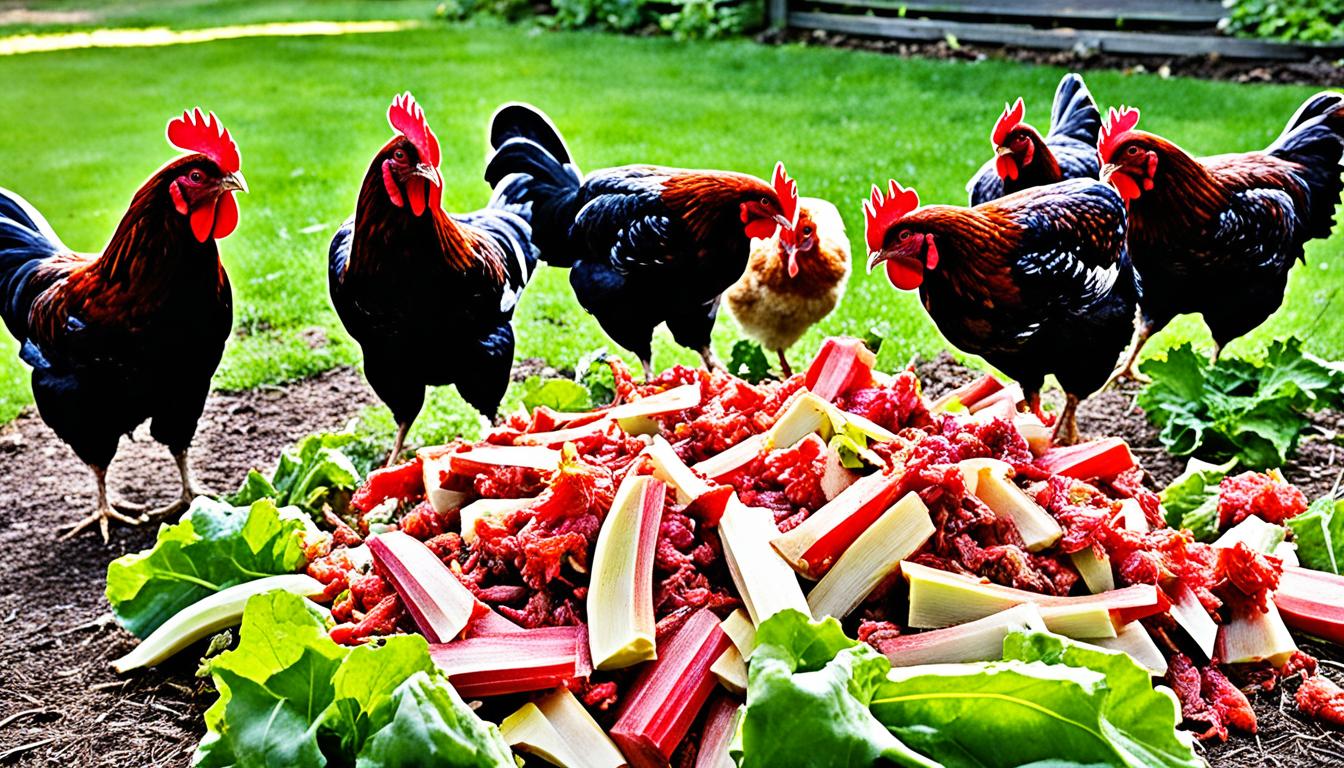When it comes to introducing new foods like artichokes to our chickens, it’s important to be cautious and closely monitor their response. While artichokes can offer many health benefits, they may not be suitable for all chickens, especially those with digestive sensitivities. By slowly introducing artichokes into their diet and watching for any negative reactions, we can prioritize our flock’s well-being. By properly caring for and attending to their dietary needs, we can offer our chickens nutritious choices that promote their overall health and vitality.
Key Takeaways
- Start with small amounts of cooked artichokes for chickens.
- Remove tough outer leaves and choke before feeding.
- Monitor closely for any adverse reactions or digestive issues.
- Adjust quantity based on chicken's response and health.
- Ensure chickens have a strong immune system before introduction.
Benefits of Artichokes for Chickens
Artichokes offer chickens a nutrient-rich dietary addition, boasting a plethora of essential vitamins, minerals, and antioxidants crucial for their overall health and well-being. Chickens can benefit from consuming artichokes in both cooked and raw forms.
When cooked, artichokes provide a good source of vitamins C and K, folate, and antioxidants that support healthy digestion, immune function, and egg production. These leafy greens also contain essential minerals like potassium, magnesium, and phosphorus, contributing to the overall health and vitality of chickens.
The antioxidants found in artichokes play a key role in protecting chicken cells from damage and promoting optimal health. To make artichokes more accessible to chickens, consider cutting them into smaller pieces to facilitate feeding.
Including artichokes in a chicken's diet can offer a variety of nutrients necessary for maintaining their health and well-being, making them a valuable addition to their feeding regimen.
Feeding Artichoke Leaves to Chickens

When introducing artichoke leaves to chickens, it's important to consider their texture and digestibility to ensure optimal consumption and nutrient absorption. Chickens eat artichokes, and feeding them cooked artichoke leaves can make it easier for chickens to enjoy this superfood.
Artichoke leaves are packed with nutrients, including Vitamin C, making them a valuable addition to a chicken's diet as part of a balanced nutritional plan. To feed artichoke leaves to chickens, it's best to offer them in small pieces to prevent any choking hazards and to make it easier for chickens to consume.
Watch for signs of rejection or difficulty in eating the leaves, and introduce this new food gradually to allow chickens to adjust. Before feeding, ensure the artichoke leaves are free from any sharp or spiky parts that could harm the chickens.
Including Artichoke Hearts in Chicken Diet
Including artichoke hearts in a chicken's diet can provide valuable nutrients such as fiber, vitamins, and antioxidants to support their overall health and well-being. When considering adding artichoke hearts to your chickens' diet, it's important to keep in mind a few key points:
- Safe and Nutrient-Rich: Artichoke hearts are safe for chickens to consume and contain essential nutrients that can benefit their health.
- Moderation is Key: Introduce artichoke hearts gradually and in moderation to prevent any potential digestive issues in chickens.
- Cooked Preference: Cooked artichoke hearts are preferable over raw ones as they're easier for chickens to digest and more palatable for them to enjoy.
Feeding artichoke hearts to chickens can offer various benefits, including improved digestion, overall health support, and potentially enhanced egg production. By including artichoke hearts as part of their diet, you can provide your chickens with a nutritious and diverse range of foods to keep them healthy and thriving.
Risks of Artichokes for Chickens

Considering the potential risks associated with incorporating artichokes into a chicken's diet, it's crucial to be aware of certain factors that may impact their health and well-being.
Artichokes contain oxalates, which can be toxic to chickens in excessive amounts and potentially lead to kidney stones. The tough outer leaves and fibrous texture of artichokes pose a choking hazard to chickens, especially if not properly prepared. Some chickens may experience digestive upset due to difficult-to-digest compounds present in artichokes.
Allergic reactions are also possible in some chickens when introduced to artichokes, emphasizing the importance of monitoring for any adverse effects. Feeding artichokes in excess can result in an unbalanced diet for chickens, affecting their overall nutritional intake.
It's essential to carefully consider these risks before introducing artichokes to chickens to ensure their well-being and health aren't compromised.
Safely Introducing Artichokes to Chickens

To safely introduce artichokes to chickens, it's important to gradually incorporate this nutritious treat into their diet while ensuring proper preparation and monitoring for any adverse reactions. When offering artichokes to chickens, consider the following:
- Start Small: Begin by feeding chickens small amounts of cooked artichokes. This helps prevent digestive upset and allows their systems to adjust to this new vegetable gradually.
- Proper Preparation: Remove the tough outer leaves and prickly choke before serving artichokes to chickens. This ensures they can consume the vegetable safely without any risk of choking or discomfort.
- Monitor Closely: Keep a close eye on your flock after introducing artichokes to their diet. Watch for any signs of adverse reactions or digestive issues. By monitoring their response, you can adjust the amount given and ensure their immune system isn't compromised.
Frequently Asked Questions
Are Artichokes a Superfood?
Yes, artichokes are indeed a superfood. Packed with antioxidants like quercetin and silymarin, they offer a plethora of health benefits. Rich in fiber, vitamins C and K, folate, and minerals such as potassium and magnesium, artichokes support heart health, aid digestion, and possess anti-inflammatory properties.
Their antioxidants shield cells from damage, reduce oxidative stress, and potentially lower cholesterol levels. Including artichokes in our diet can significantly enhance our overall well-being.
What Are the Most Nutritious Things for Chickens Feed?
When considering the most nutritious feed for chickens, it's crucial to focus on a variety of nutrient-dense options.
Leafy greens like kale and spinach, root vegetables such as carrots and sweet potatoes, and squash varieties like zucchini and pumpkin provide essential vitamins and minerals.
Cruciferous vegetables like broccoli and Brussels sprouts offer a wealth of nutrients, while peas and beans like green beans and lentils are excellent sources of protein and fiber for our feathered friends.
What Is the Most Nutritious Way to Eat an Artichoke?
When it comes to the most nutritious way to eat an artichoke, steaming or boiling it's ideal. These methods retain vital nutrients like vitamins C and K, folate, and antioxidants.
Consuming them raw might preserve some nutrients but can be tough on digestion. To ensure a smoother experience, removing the tough outer leaves and fuzzy choke is essential.
Enhance the flavor by dipping the leaves in lemon juice or vinaigrette.
What Fruits and Vegetables Should You Not Feed Chickens?
When it comes to feeding chickens, it's crucial to avoid certain fruits and vegetables that can be harmful. Some items like raw potatoes, onions, and rhubarb leaves are definite no-gos. Be cautious with tomatoes, as their green parts can be toxic. Spicy or very salty veggies should also be off-limits.
Can Artichokes and Japanese Beetles Be Part of a Chicken’s Balanced Diet?
Artichokes are a great addition to a chicken’s balanced diet, providing essential nutrients and fiber. However, it’s important to monitor chickens eating Japanese beetles, as they can be toxic and harmful to the birds. By regulating their diet, chickens can enjoy a healthy and balanced meal plan.
Conclusion
In conclusion, introducing artichokes to your chickens can provide a variety of health benefits and nutrients. Remember to start slow and monitor their reaction to this new superfood.
Just like a well-balanced diet is key to our health, adding artichokes to your chickens' diet can be a feather in their cap!
So go ahead, let your chickens munch on some artichokes and watch them thrive.









